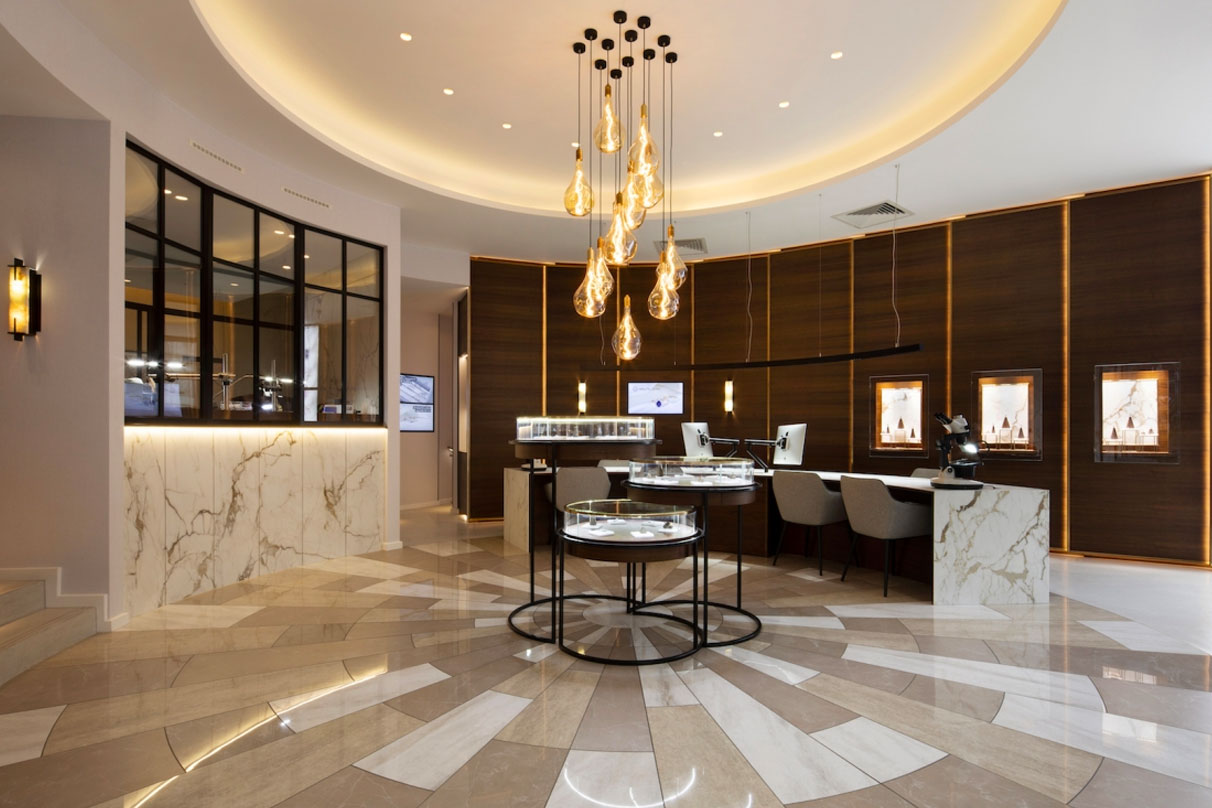Frequently Asked Questions
Why have a My Solus account?
What are the best tiles to use in a commercial environment?
It’s important in a commercial space to maintain a serene environment, whether it’s to enhance productivity in an office or make customers feel comfortable in a restaurant. Although this element of composure needs to be upheld, it’s also important to leave a lasting impression. Simple styles such as Solus’ Halogen collection are an ideal floor covering, while more detailed tiles can be used to cover sections of the wall or ceiling. Designs such as Solus’ porcelain, Concreta 2 or the digitally-printed Illustrate range would be the perfect complement. This combination of simplistic and intricate will provide a perfectly balanced, yet impressive, commercial interior. It is also important to consider any slip resistance requirements, and in most cases tiles must score 36+ in a pendulum test. With their fully equipped technical lab, Solus are able to offer pendulum tests on any of their products.
How long does retiling take?
When considering retiling, many commercial owners are turned off the idea because they think it will take too long. Whilst fully clearing a space, lifting existing floors and fixing porcelain tiles will create disruption, commercial managers and designers can now consider dry lay systems such as pedestal and raised floor fixings. These solutions allow contractors to quickly and efficiently lay tiles in a fraction of the time it would take for traditional tiling, and also means that tiles can be lifted and replaced, and in many cases wires and pipes can be layed in the cavity below.
What is digital printing?
Digital printing is a technology that allows patterns and images to be applied to a variety of materials, including porcelain. Using a particular range of ceramic toners and innovative printing systems, images are cast on to the tile without compromising its strength or durability. This new technology means that the design opportunities for tiles are endless with products such as Solus’ intricately designed Polygon range or the geometric patterns of its Sequence collection.
Where can porcelain tiles be used?
Due to their adaptability, durability and water-resistant nature, porcelain tiles are suitable for use in both indoor and outdoor environments. These multi-faceted tiles have become one of the most popular choices of ceramic floor tiles for many centuries. Porcelain’s strength and resistance to wear-and-tear have also made it a common solution for areas with constant pedestrian traffic, such as retail shops, public buildings, offices and restaurants. Porcelain’s versatility in regards to finishes, colours and sizes has also seen the material evolve into serving a more decorative purpose. In recent years, tiling walls, ceilings, and even a building’s external facade has become trendy, and porcelain tiles have been fit for the job.
What are porcelain tiles?
The first thing that comes into most people’s minds when they hear the word ‘porcelain’ is fragile. However, porcelain tiles are quite the opposite! Originating in China, porcelain is a man-made ceramic material that forms when various clay materials, particularly kaolin, are heated at extremely high temperatures. Porcelain is actually an extremely strong and impermeable material. Its strength comes from the vitrification process and the formation of a mineral called mullite that is present after the clay is heated at such high temperatures. Also an incredibly versatile material, porcelain can be used in a variety of ways and is available in an array of finishes, colours and sizes. Thanks to its popularity and durability, porcelain is now manufactured around the world, including Spain and Italy which are renowned for their quality standards, which is why Solus source their porcelain tiles from these nations.
